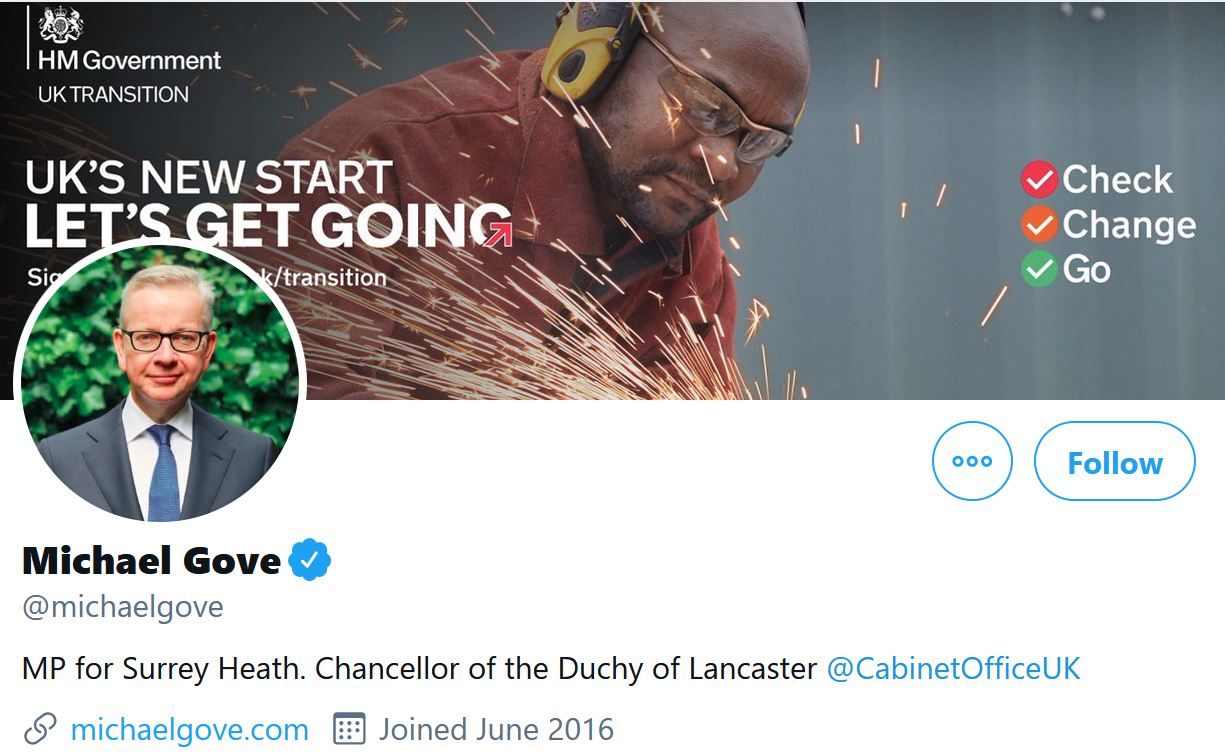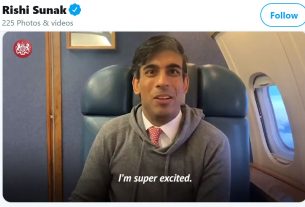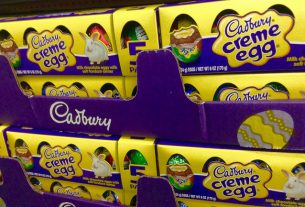Michael Gove has warned UK businesses of “bumpy” moments ahead as the new arrangement with the EU comes into effect while individuals have been told to check their phone contracts, health insurance and passports if they plan to travel to the EU.
British citizens not travelling to the EU have also been told they face disruption with online purchases from EU traders now subject to customs duties – which shoppers will have to pay at post offices in order to receive some items from January 1.
The Guardian reports that “VAT and handling fees may also apply on some items” with parcels held up at sorting offices until the charges are paid. The new rules also spell the end for “booze cruises” to France with limits and restrictions on alcohol and tobacco also coming into force.
EU states green light trade deal
Ambassadors from all 27 EU states today (Monday) provisionally approved the deal struck on Christmas Eve to allow tariff free trade between the UK and EU to continue when the transition period ends at 11pm on Thursday (December 31).
Some checks at borders are being delayed for three to six months to help prioritise the flow of trade but others will be introduced immediately on New Year’s Eve.
The deal will receive formal ratification by the European parliament next month and will be voted on by MPs on Wednesday – but it has been slammed by the UK’s fishing sector as a “betrayal”.
‘All choices are in our hands’
The UK’s chief negotiator Lord Frost said the deal marks “the beginning of a moment of national renewal”.
Frost called the 1,246 page document – which includes around 800 pages of footnotes and annexes – “one of the biggest and broadest” trade deals ever and told reporters: “There’s no more role for the European Court of Justice, there’s no direct effects of EU law, there’s no alignment of any kind, and we’re out of the single market and out of the customs union just as the manifesto said we would.
“All choices are in our hands as a country and it’s now up to us to decide how we use them and how we go forward in the future.”
Brexit irony is more bureaucracy
As Frost surmised, Breixit was about sovereignty, taking back control and the UK breaking free of the EU’s red-tape – so it is ironic then that the result for business trading with the EU is extra bureaucracy, more checks and greater costs.
Because the cost of choosing sovereignty over free trade is customs declarations, export forms, product safety certificates, sanitary checks on food produce and assorted new requirements for businesses to meet in order to trade.
Gove today praised the “fantastic free trade agreement” whilst warning businesses to make sure they understood the new rules on exporting and importing goods.
Cabinet office minister Gove even claims the greater friction and new ways of working could have some benefits for businesses, arguing those “which previously traded within the EU but not outside it are now familiarising themselves with processes that mean that they can trade outside the EU as well.
“So that means that they are match fit for global trade because these procedures are ways of making sure that companies can export more.”
N Ireland frictionless trade with EU but not GB
Northern Ireland is the only part of the UK that will continue to have frictionless trade in goods with the EU, but NI businesses have new bureaucracy to complete in order to trade with Great Britain.
Michael Bell of the Northern Ireland Food and Drink Association commented on Gove’s use of a “friendly word” like “bumpy” to describe what lies ahead for businesses.
“There are other words that describe the same thing such as unsettling, uneven or disconcerting,” Bell told BBC News.
ERG ‘plea’ to vote in person on ‘historic’ event
The “Trade and Cooperation Agreement between the European Union and the European Atomic Energy Community, of the one part, and the United Kingdom of Great Britain and Northern Ireland, of the other part” has been published by the government and will be voted on by MPs on Wednesday.
Members of the pro-Brexit European Research Group of Conservative MPs have “pleaded for a guarantee that they will be able to speak in the Commons” during the “historic” debate.
The plea, reported by the Telegraph, follows the Speaker’s urging of MPs to stay at home and debate ‘remotely’ following the surge in coronavirus cases that has led to large parts of the country being put in tighter tiers and restrictions after Christmas.
House of Commons’ Covid restrictions allow only 50 MPs to be present in the chamber at any one time and the Speaker Sir Lindsay Hoyle is understood to be concerned about MPs travelling to and from their constituencies to Westminster.
Gove warns there new Covid strain means ‘trade-offs’ for schools
As well as warning of “bumpy moments” ahead for business, Gove also warned that concerns about the new strain of coronavirus means “trade-offs” will have to be made in the New Year regarding children returning to schools.
Gove said: “It is our intention to make sure we can get children back to school as early as possible. We are talking to teachers and head teachers in order to make sure we can deliver effectively. But we all know that there are trade-offs.”
The new, more infectious Covid strain will mean a staggered return to school for children in England after the Christmas holiday with pupils in years 11 and 13 going back to classrooms as planned while others will return later in the month.



